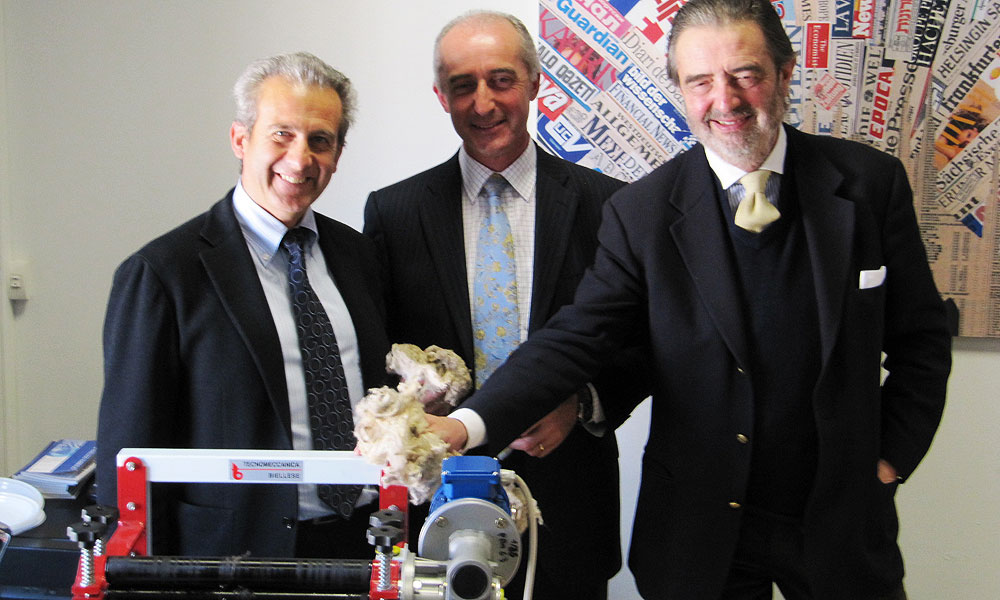If only he’d had the idea a little sooner, he could have solved British Petroleum’s problems caused by the Deep Horizon disaster in the Gulf of Mexico in a matter of hours. That is the only regret of Luciano Donatelli, managing director of SignBox/Rpb and president of the Industrial Association of Biella, when he tells us how, while watching the oil spill on TV, as it spread completely out of control, he was reminded of an episode in his childhood.
He had spilled some diesel oil in the garden pond and a man who made woolen mattresses taught him how to clean it up using greasy wool, of all things. He decided to try and develop a system for blotting up oil based on the use of «wool waste», which is a by-product of in the apparel industry and often creates problems for the wool processors who have to dispose of it. This happened in the summer of 2010: after performing the necessary technical tests, and with the collaboration of Mauro Rossetti, director of the Textile and Health Association of Biella, and Mario Ploner, managing director of Tecnomeccanica Biellese, he started to design a technological system capable of solving the oil spill problem at reasonable cost and in a short time, which can also serve to reduce water pollution in general, especially in harbors and ports.
Now Wores, the acronym of Wool Recycle Eco System, is the first technological method capable of recovering oil spilled into the sea using greasy wool, i.e. wool as it comes from the sheep, before being treated. The patent is 100% Italian. «Wores benefits everybody involved: 10 tons of greasy wool are sufficient to absorb more than 950 tons of oil, equivalent to 6,350 barrels, because the same wool can be used at least a dozen times. The oil is then directly processable in any refinery and the greasy wool purchased for the purpose brings new income to the sheep breeders» explains Ploner.
The technologies, machines and process were patented by his company, Gruppo Creativi Associati (Associated Creative Group), and are applicable to two types of activity, one for major disasters in the sea and one for small cleanups in ports, lakes and rivers. A rapid calculation of the costs reveals that Wores is a lot cheaper than any of the consequences of pollutant spills in the sea: greasy wool has a cost of about 1 euro per kg, inclusive of packing and shipment; it costs about a million euro to equip a ship with the treatment facilities.
This means that a ship, using 10,000 kilos of wool (at a cost of 10,000 euro), can collect over 6,350 barrels of oil in 10 hours which, at 70/80 dollars a barrel will be worth 500,000 euro. In 20 hours it is possible to recover enough oil to pay for equipping the ship. Without considering the value, which is really priceless, from the ecological viewpoint, of being able to clean tons of crude oil out of the sea.
The challenge at this point is to find an industrial partner on a large scale, capable of making the Wores patent a success worldwide: «For the moment» concludes Donatelli «we have been in touch with several shipping companies, which are evaluating the possibility of duplicating our prototype with low-cost kits for sale to the oil companies, but also to tour operators who want to protect themselves against the risks of environmental disasters».
Valeria Volponi
[flv]https://www.panorama.it/panorama/statici/video/oil_wool.flv[/flv]

